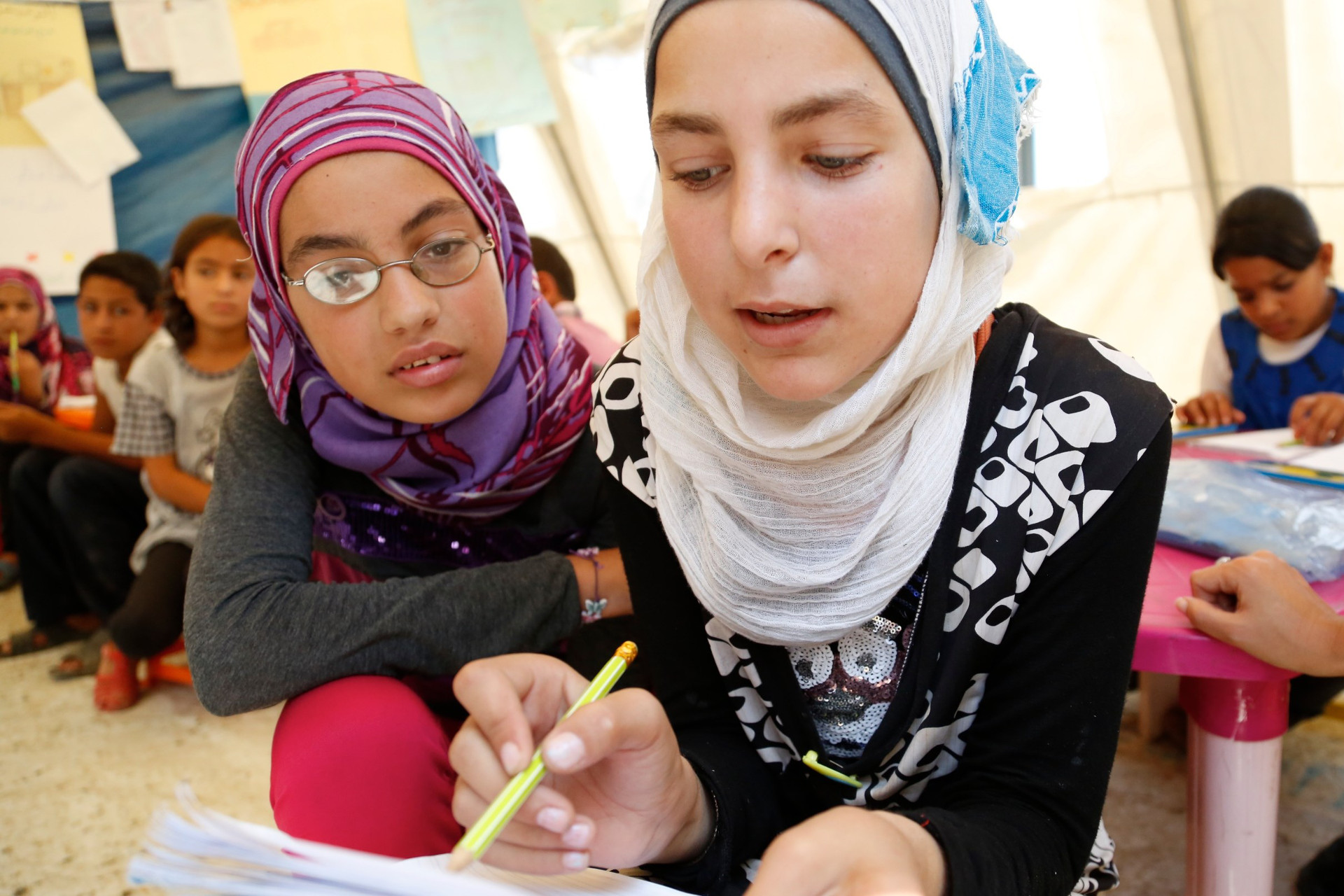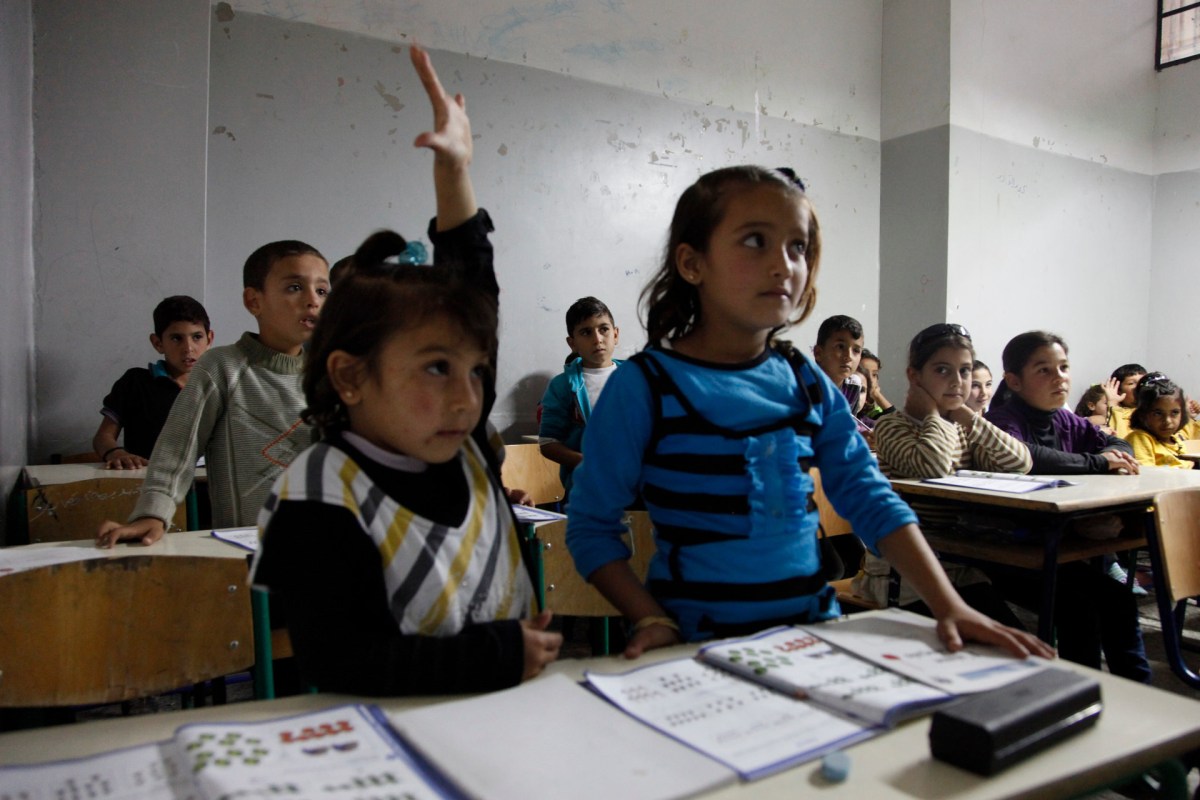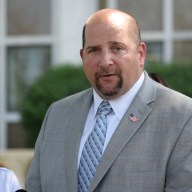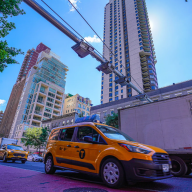By Rashed Mian and Christopher Twarowski
A Catholic nonprofit that helps war refugees, sex trafficking victims, and the oppressed resettle on Long Island says there are currently no plans to bring Syrian refugees to the region.
Not only are there no plans to bring Syrian refugees to LI, but there are currently zero applications for resettlement in Nassau and Suffolk counties, says Umberto Mignardi, a spokesperson for the nonprofit Catholic Charities, a ministry of the Diocese of Rockville Centre that provides basic care to immigrants, the poor, and other destitute individuals.
His emphatic response comes amid growing trepidation among local residents, fueled by emails warning friends about a supposed “tent city” being constructed in Amityville to aid those fleeing the war-torn country, Mignardi tells the Press.
Since the coordinated terror attacks in Paris that killed 129 and injured more than 300 people across the City of Lights last Friday, Catholic Charities, a national agency, has been flooded with phone calls from residents and elected officials concerned about Syrian refugees coming to Long Island.
Europe has been besieged by an unprecedented number of refugees and migrants attempting to escape conflicts in Syria, Afghanistan and Iraq, with hundreds of thousands applying for asylum or embarking on perilous and often fatal treks across land and sea to various countries’ borders, resulting in a humanitarian crisis of epic proportions. The Obama administration announced earlier this year that it would welcome up to 10,000 Syrian refugees into the United States, a tiny fraction of the more than 12 million displaced and estimated 4 million refugees who’ve fled the four-year civil war and related atrocities there committed by the self-declared Islamic State of Iraq and Syria (ISIS), including mass killings, executions, beheadings, bombings, torture, abductions, mutilations, massacres, crucifixions, slavery and systemic rape. A June 2015 report by the United Nations’ refugee agency, the Office of the United Nations High Commissioner for Refugees, puts the number of people displaced by war and persecution worldwide at nearly 60 million—the most since World War II.
Half of those displaced are children.
In the wake of Friday’s attacks, more than two dozen governors across the country and countless lawmakers have come out publicly against the White House’s plan to resettle Syrian refugees. One of the most vocal opponents has been Rep. Peter King (R-Seaford), who penned separate letters to President Obama and House Speaker Paul Ryan (R-Wisconsin) Tuesday expressing “serious concerns” about how federal officials plan to vet these refugees before they settle here.
Others outspoken opponents include Republican presidential hopefuls New Jersey Gov. Chris Christie—who told conservative radio show host Hugh Hewitt on Monday that he wouldn’t even admit “orphans under 5″—and Donald Trump, who warned on Twitter Tuesday that “refugees from Syria are now pouring into our great country. Who knows who they are—some could be ISIS. Is our president insane?”
(For the record, King told MSNBC he’d allow young orphans into the country, reports CNN.)
Christie’s counterpart in New York, Gov. Andrew Cuomo, blasted Republicans as playing politics amid the presidential campaign season.
“This is an election season, so the silly season has started and the governors can say, ‘I will refuse to let the refugees in,’” Cuomo said Tuesday. “How? How? Where does it say in the state constitution you can refuse a person placed by the federal government? What are you going to [do?] Have your militia fight the federal government at the borders of your state? It’s a pure political statement.”
“We have to protect Americans and not lose our soul as America in the process. Right?” he added. “The day America says, ‘Close the gates, build the wall,’ then I say take down the Statue of Liberty because you’ve gone to a different place.”
On suburban Long Island, which consistently ranks among the top of “Most Segregated” lists in the country and where affordable housing for its own residents has remained a charged issue for decades—with even the hint of such a project drawing fervent reactions—the prospect of Syrian refugees in Nassau and Suffolk has incited fierce, impassioned rhetoric, with many taking to social media to vent.
“Save the puppies!!! Send the refugees home,” spewed a man on News 12 Long Island’s Facebook page beneath a story about more than 100 puppies recently arriving at Port Washington’s North Shore Animal League for adoption.
“Soooo how long before the Syrian ‘refugees’ can move into wyndanch rising complex?” snickers another beneath a breaking news piece about Russia’s disclosure it was a terrorist act that brought down a passenger plane over Egypt last month, killing 224 people—Wyandanch Rising being the Town of Babylon’s long-awaited $500 million public/private redevelopment and revitalization project for the primarily minority hamlet.
In the wake of the Paris attacks, it’s been Catholic Charities that’s had to field calls—and debunk hysterics—about the rumored refugee encampment in Amityville.
“We’ve been getting calls all day about a ‘tent city’ going up in Amityville,” says Mignardi, adding: “I keep telling people we have zero applicants in Nassau and Suffolk county.”
Catholic Charities’ two offices on LI—Amityville and Hicksville—received about 100 phone calls Monday and Tuesday from people worried about refugees, he says. Some have been from lawmakers and elected officials who themselves inquired about the tent city rumors; others ask about the agency’s security protocols.
Catholic Charities’ mission is to provide clients with essential care, not scrutinize their background, explains Mignardi, adding that the responsibility to screen refugees falls on the federal government.
“We’re not the State Department,” he continues, “we don’t interview them.”
Although there are no applications for Syrian refugees to come to LI, Catholic Charities has been told by the feds that, if refugees are resettled here in the future, it can expect no more than 15 families.
Mignardi says the refugee resettlement process is rigorous, echoing sentiments from various relief agencies assisting refugees. Anyone coming to the United States would go through several layers of security, including more than a dozen background checks.
“You have to have interviews at the embassy of your origin,” he explains. “You have to have a family here sponsor you who ultimately is responsible for you, so that you’re not coming here and you’re homeless…it’s a difficult thing to establish.”
The entire process could take anywhere from 18 to 24 months, he continues.

If the federal government does decide to place any refugees on Long Island, the mostly likely scenario is that they wouldn’t get here until 2017, adds Mignardi. According to the U.S. State Department’s Refugee Processing Center, there have been 36 Afghanis, Iraqis and Pakistanis who’ve resettled on Long Island since 2010. Zero Syrians.
But the backlash against refugees—Syrians, especially—has erupted on both sides of the Atlantic since the Paris attacks, fueled by reports that one of the gunmen was carrying a Syrian passport and entered Greece within a deluge of other refugees. In recent days, the authenticity of the passport has been scrutinized, and Agence France-Presse reports it may have belonged to a deceased Syrian soldier.
Though U.S. and European lawmakers have been raising objections to refugee resettlement plans for months out of concern that ISIS could use the humanitarian crisis as a cover to infiltrate and carry out an attack, it’s reached a fevered pitch in the aftermath of the bloodbath in France.
King, chairman of the Homeland Security Subcommittee on Counterintelligence and Terrorism, wrote to Obama Tuesday, requesting he “immediately halt the resettlement of Syrian refugees into the United States.”
“I have serious concerns with recent statements you and officials in your Administration have made regarding security vetting for the Syrian refugee population,” he warned, asserting that until a “top to bottom” review of the current vetting process is complete, the White House must suspend acceptance of refugees.
In his letter to Ryan, King threw his support behind the speaker’s plan to establish a task force to address “security threats inherent within this refugee population.”
“While I do not support current resettlement efforts for Syrian refugees in the U.S., I do want to voice my support for overseas activities to provide humanitarian aid for these migrants,” King told his fellow Republican.
My Daily News OP/ED detailing opposition to admitting Syrian refugees into the U.S. https://t.co/Xv78dMVn0B
— Rep. Pete King (@RepPeteKing) November 17, 2015
The United States, a country founded by immigrant colonists, has a long history of accepting refugees—taking in nearly 70,000 annually, according to the U.S. Office of Refuge Resettlement, with more than 4,000 resettling in New York State. Since the Sept. 11, 2001 attacks, the United States has resettled 784,000 refugees, according to the independent nonprofit Migration Policy Institute.
The organization found that only three of those refugees—less than half a percent—“have been arrested for planning terrorist activities—and it is worth noting two were not planning an attack in the United States and the plans of the third were barely credible.”
MPI stresses that the resettlement process is so arduous, it’s unlikely a terrorist would hide among refugees to enter the United States.
“The most common arguments against resettling more Syrian refugees, made by some Republican presidential candidates and members of Congress, is that the resettlement program could be a path for infiltration into the United States by ISIS or other terrorists,” states MPI. “But the refugee resettlement program is the least likely avenue for a terrorist to choose. Refugees who are selected for resettlement to the United States go through a painstaking, many-layered review before they are accepted. The FBI, Department of Homeland Security, State Department, and national intelligence agencies independently check refugees’ biometric data against security databases. The whole process typically takes 18 to 24 months, with high hurdles for security clearance.”
In France, President Francois Hollande on Wednesday pledged to welcome in 30,000 Syrian refugees, just days after the country was attacked.
“France will remain a country of freedom,” he said, as French authorities continued to hunt Wednesday for the alleged mastermind and other accomplices—with a raid in northern France that killed fugitive ISIS commando Abdelhamid Abaaoud.
New York-based International Rescue Committee, a humanitarian group tasked with resettling refugees, was forceful in its rebuke of governors who want to close their states’ borders to refugees.
“Refugees are the most security vetted population who come to the United States,” the agency said in a statement Tuesday. “Security screenings are rigorous and involve the Department of Homeland Security, the FBI and the Department of Defense.”
“Banning Syrian refugees will not make America safer; it will make refugees more desperate. Syrian refugees are fleeing violence—including by ISIS—and are seeking safety for themselves and for their families,” continues the statement. “We deplore the insinuation in the recent banning orders against Syrian refugees that either they are terrorists, or that it is impossible to separate them from those seeking to come here to commit terrorism.”
That plea was reiterated by United Nations High Commissioner for Refugees António Guterres, who, standing Tuesday among the thousands of daily refugees entering Presevo, Serbia, deemed it “absolute nonsense” to blame them for terror attacks, stressing they were instead its “first victims.”
“It is not the refugee outflows that cause terrorism. It is terrorism, tyranny and war that create refugees,” he stressed.
(Featured Photo Credit: Russell Watkins/ UK Department for International Development)































